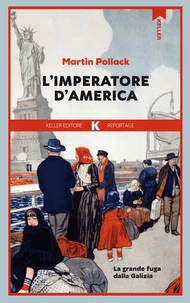Gerhard Bast, was found shot in an abandoned bunker in northern Italy close to the Austrian frontier in April 1947. Martin Pollack , his son, was then three and has no memories of his father. A middle-ranking SS officer, Bast had been on the run since the end of the war. He was an early member of both SS and Nazi Party and during the war commanded small Einsatzkommando in the Caucasus and in Poland. He ended the war involved in murderous rear guard actions and atrocities on Slovakia. In attempting to piece together his father's life, Pollack assembles the memories of family and friends -who remain extreme German nationalist -and confronts the past by carefully reconstructing their lives with an extraordinary historical investigation. Pollack digs deeply into the archives and travels to the places important in the history of the Bast family and in his father's Nazi career. It is a painful, personal journey for Pollack and one he had put off making, until well into his fifties. The result is remarkable both as history and as a family memoir.
Gerhard Bast, was found shot in an abandoned bunker in northern Italy close to the Austrian frontier in April 1947. Martin Pollack , his son, was then three and has no memories of his father. A middle-ranking SS officer, Bast had been on the run since the end of the war. He was an early member of both SS and Nazi Party and during the war commanded small Einsatzkommando in the Caucasus and in Poland. He ended the war involved in murderous rear guard actions and atrocities on Slovakia. In attempting to piece together his father's life, Pollack assembles the memories of family and friends -who remain extreme German nationalist -and confronts the past by carefully reconstructing their lives with an extraordinary historical investigation. Pollack digs deeply into the archives and travels to the places important in the history of the Bast family and in his father's Nazi career. It is a painful, personal journey for Pollack and one he had put off making, until well into his fifties. The result is remarkable both as history and as a family memoir.
